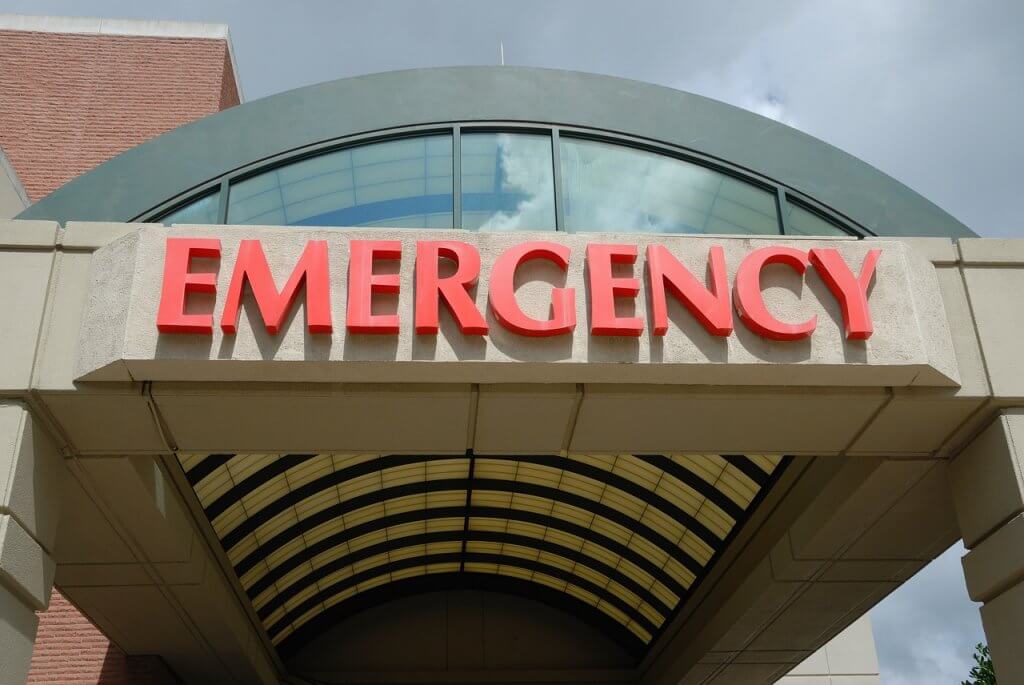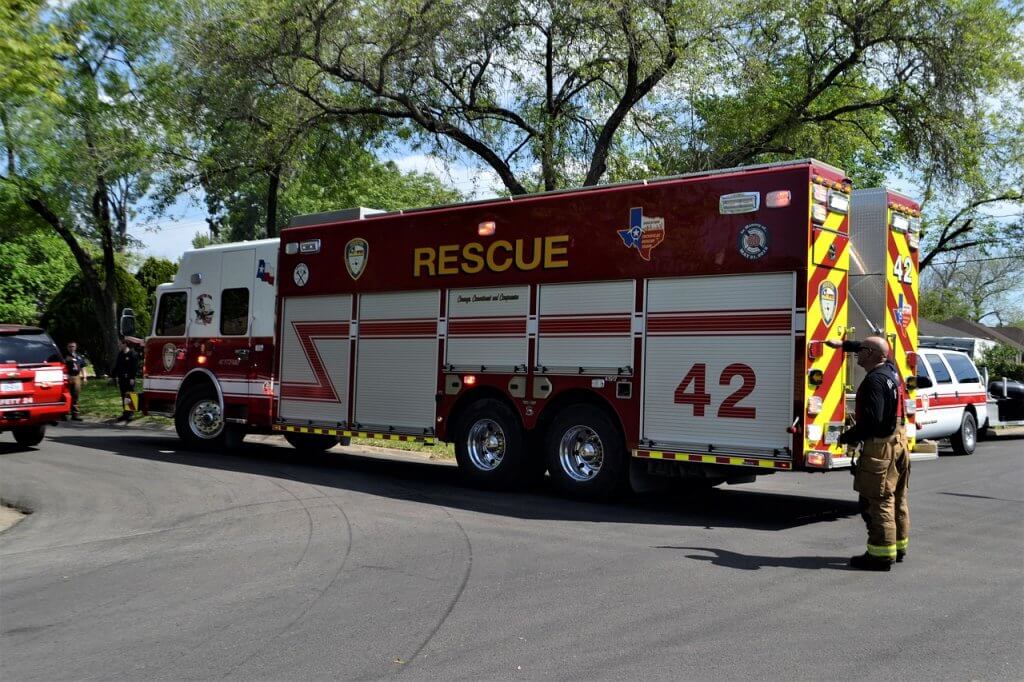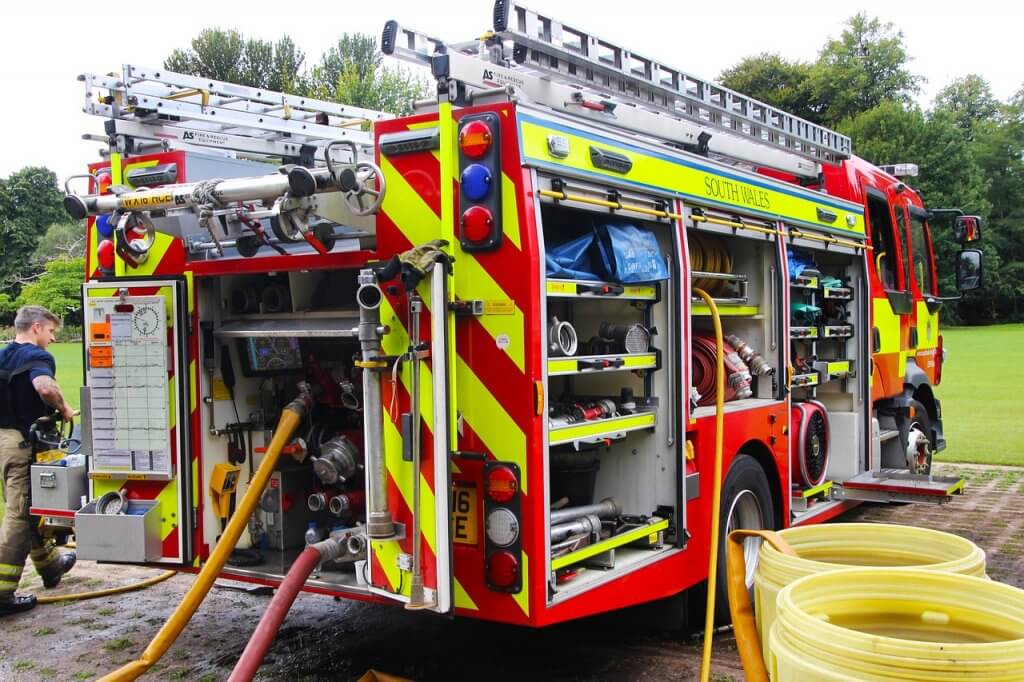
If you have a degree in Emergency Management, you’ll be able to find a whole variety of career options.
Looking for a career in this field, you need to have an Associate’s degree for entry-level jobs and a Bachelor’s degree if you want some more advanced offers.
You can also get a Master’s degree which gives you an opportunity to get a higher position and a higher salary as well.
Just keep in mind there are pretty much online training programs for those who want to get their Bachelor’s’ degree.
Considering the number of career options, you can find employment in various facilities.
Speaking of the federal level, there are such agencies as the FBI, Office of Homeland Security, National Domestic Preparedness Office, the Department of Justice, and others.
One other, more global option, is the American Red Cross that provides support for people in case of natural disasters and other accidents.
Working in the Emergency Management sphere, you can earn from $34 360 to $80 551 per year, according to PayScale data.
A median annual salary in this sphere is about $53 000 per year.
Other resources claim that an entry-level worker with less than 5 years of experience earns about $48 000 annually.
The U.S. Bureau of Labor Statistics says that workers with a Bachelor’s degree and more than 5 years of experience earn a median salary of $70 500 per year.
Also, it should be mentioned that lots of new job offers appear constantly.
In this article, we’ve prepared the list of the top 10 the most fruitful careers in the Emergency Management sphere.
Article Table of Contents
- 1 Hazardous Material Management
- 2 Homeland Security Officer
- 3 Public Health Preparedness
- 4 Public Information Officer
- 5 Hospital Emergency Preparedness Administrator
- 6 Emergency Management Specialist
- 7 Emergency Management Coordinator
- 8 Emergency Preparedness Specialist
- 9 Engineer
- 10 Geographer
- 11 EMT/Paramedic
- 12 Conclusion
- 13 Frequently Asked Questions
- 13.1 What does an emergency management professional do?
- 13.2 Where do emergency managers work?
- 13.3 What is the purpose of hazardous materials plan?
- 13.4 Who needs a hazardous materials business plan?
- 13.5 How can I work for the US Homeland Security?
- 13.6 How long is homeland security training?
- 13.7 What is the role of public health in emergency preparedness?
- 13.8 What is the goal of public health?
Hazardous Material Management

Nowadays, communities pay much attention to various accidents such as warehouse fires, shipping accidents, industrial and highway incidents, and train derailments.
According to the latest data, accidents that involve hazardous materials are considered as the most dangerous ones.
Speaking of hazardous materials, there is a whole bunch of dangerous substances such as natural or synthetic gas, toxic chemicals, petroleum and so on.
In order to deal with such a problem, there required a team of experienced and skillful professionals that understand all the issues related to these materials.
To enroll in this career, you usually need to obtain a degree in Occupational Safety & Health or Environmental Science.
You can obtain this degree online at Columbia Southern University.
Its program contains such disciplines as:
- hazardous material management
- construction safety
- OSHA safety
- accident investigation and others.
After completing your training you may need to get a certification at The Institute of Hazardous Material Management (IHMM).
Median Annual Salary: $46,576 (Hazard Analysis Coordinator)
Homeland Security Officer

There are lots of colleges and universities in the USA that offer programs related to homeland security and protection of vulnerable geographical areas.
You should know that in case of some disasters, the U.S. Department of Homeland Security and the Federal Emergency Management Agency (FEMA) work together.
According to the Post Katrina Emergency Management Reform Act, the DHS Secretary is obliged to provide support to the Surge Capacity Force (SCF).
It means that as soon as some disaster occurs, the Secretary should get in touch with SCF and determine whether any help is required.
If the help is needed, the Secretary need to authorize FEMA and deploy the Department personnel to other federal agencies that need support.
In 2007, the National Strategy for Homeland Security was presented.
This document was created to regulate DHS’ work during both natural and man-made disasters.
Median Annual Salary: $46 596
Public Health Preparedness

The Public Health Emergency Preparedness (PHEP) cooperative agreement – it’s a document that guarantees to fund for territorial, state or tribe health departments.
Starting in 2002, health departments all over the country got $11 billion that was provided by PHEP.
This money allowed health departments to improve their ability to respond to various health issues such as infections, disasters, and man-made accidents.
Most workers in this sphere previously worked in related spheres such as healthcare, public workforce, emergency management, and so on.
If you want to enter this field, you can complete your training at the University of Minnesota, for example.
It has a Public Health Certificate in Preparedness, Response, and Recovery program for those who want to obtain their Bachelor’s or higher degree.
The program was designed to provide you with all the necessary skills so you can cope with various emergencies and bioterrorism issues.
The main focus of the program is such issues as bioterrorism incidents, emergent public health threats, and infectious disease outbreaks.
Median Annual Salary: $49 311 (Public Health Specialist)
Public Information Officer

Public information officers are one of the most significant parts of the emergency management framework.
They are required to support the whole incident command structure.
To work on this position, you need to have excellent knowledge of federal and state as well as local emergency regulations.
It means that you should also update your knowledge as it can change at any time.
Public information officers’ responsibilities include:
- gathering data
- preparing emergency plans
- carrying out prepared plans.
These specialists use various types of mass media and the Internet to inform people about emergencies, shelters, evacuation and other related issues.
If you want to enroll in this career you should at least complete a Bachelor’s degree in business administration, public administration or emergency management.
Median Annual Salary: $51 573
Hospital Emergency Preparedness Administrator

According to the law, in any hospital, there should be an Emergency Operations Plan (EOP) which inform people about actions they should take during and after various hazards.
Being a hospital emergency preparedness administrator means that you’ll be obliged to use response procedures, capabilities and procedures in case community cannot provide a hospital with the required support.
Among your duties there also will be:
- recovery strategies implementation
- response phases initiation
- activation and authorization of alternate sites for care treatment and emergency services.
If you’ve been working as a firefighter or emergency medical technician, you can restart your training on Emergency Management.
Also, working as an emergency medical technician, you may be obliged to deal with the Emergency Operations Plan as well as training for personnel.
Moreover, you need to be able to make recommendations, maintain papers, communicate with the Director of Safety and Emergency Preparedness to assess areas of improvement.
Keep in mind that choosing a training program, you need to make sure it’s focused on how a disaster can impact on medical facilities.
Median Annual Salary: $52 038 (Hospital Safety Coordinator)
Emergency Management Specialist

Emergency Management specialists are responsible for various behind-the-scenes issues.
The list of responsibilities includes such points as:
- emergency personnel training
- coordination of communication between various agencies
- disaster response planning.
Considering the growth of various disasters and national security threats, there is a growing demand for emergency management specialists.
These specialists should constantly get in touch with officials of various facilities in order to reveal whether they are prepared for possible emergencies and whether they need any help.
Also, they are obliged to hold inspections of those facilities to make sure that there is all the required equipment.
There are lots of career options for emergency management specialist.
In 2017, for example, NASA looked for such a specialist.
One of the main points is that all emergency management specialist need to work in conjunction with the local Emergency Preparedness Officer.
During any emergencies, such specialists are responsible for managing/directing the mobilization of all the required equipment.
Median Annual Salary: $54 439
Emergency Management Coordinator

EM Coordinators are responsible for planning, development and implementing of emergency management programs and policies.
Being a public employer, these specialists should become a disaster service workers in case of an emergency.
It is claimed by the law that aims to make sure that every employee of various agencies makes everything possible to protect people and provide them with any necessary help.
In other words, you are going to perform as the city’s lead person and adviser in case of an emergency and before it in order to prevent a possible disaster.
For example, in 2017, the city of Downey, California, was looking for an EM Coordinator in order to develop and maintain an emergency management strategy for the city.
Working as EM Coordinator, you’ll be obliged not only to implement disaster plans but also monitor trends in EM planning and analyze them.
Also, you’ll need to be able to recommend possible improvements in emergency preparedness, response, and recovery.
Median Annual Salary: $54 928 (Emergency Response Coordinator)
Emergency Preparedness Specialist

If you have a Bachelor’s degree in emergency management and enough experience, you can become an emergency preparedness specialist.
One of such offers was recently published by the state of Wyoming which is looking for an employee who can sure that the state follows National Presidential Directives.
The aim of this job is to prevent terrorism and protect infrastructure within the state.
Among the other duties, there are lots of points including coordination of efforts that aim to strengthen and keep working some important infrastructure.
Moreover, it includes the organization of public campaigns in order to promote public emergency preparedness.
Also, working as an emergency preparedness specialist, you’ll be obliged to assist public information plans creation and communicate with community groups and facilities.
Median Annual Salary: $54 928
Engineer

This career involves a whole bunch of industries such as mechanical, geotechnical, structural, architectural, civil and metallurgical spheres.
The main responsibilities of engineers are to prevent, mitigate and eliminate damage of constructions and structures in case of a disaster.
Engineers implement the latest technologies and materials while constructing infrastructure and buildings so they can withstand various disasters like hurricanes, floodings, and earthquakes.
Also, they are obliged to analyze properly the aftermaths so they can find the aspects that should or can be improved to avoid possible destruction.
Speaking of civil engineers, these specialists learn about the latest trends in construction technologies and materials.
The geotechnical engineers are responsible for sub-soil analysis to make sure it is a convenient base for construction.
Median Annual Salary:$63 830 (Civil Engineering)
Geographer

Working as a geographer in emergency management, you’ll be obliged to study natural hazards as well as various atmospheric and geological factors such as floodings, hurricanes, earthquakes, and drought.
It means you should be able to reveal where and why any natural disaster will occur.
To make it possible, you need to use a whole bunch of various geographical technologies so you can understand better the essence of every natural and man-made disaster.
After completing your training in geography and before enrolling in emergency management, you are obliged to complete some extra courses in specific disciplines:
- hazards
- climatology
- geographic information system (GIS)
- cartography
- urban geography
- geomorphology
You should know that there are lots of career options provided by government agencies, nonprofit and international organizations as well as federal authorities.
Median Annual Salary: $74 274 (Geographer)
EMT/Paramedic
It’s not ABSOLUTELY necessary to get a degree for this in all states.
So why did it make the list?
Well, it’s one of the most common emergency careers there is and we thought it deserved a mention.
While we’re talking about it, check out our full how to become an EMT/Paramedic guide here.
Conclusion
As you can see, there is a whole bunch of jobs for those with an emergency management degree.
The last two careers require degrees in other fields but still, involve emergency management aspects.
Those two were included in our list as they both are absolutely important when it comes to managing various disasters.
The jobs in this article can be considered as the top options for those who have an emergency management degree.
If you want to learn about emergency management or available job offers, you may visit one of the websites below:
Frequently Asked Questions
What does an emergency management professional do?
Emergency management professionals plan for emergencies such as natural disasters, technological disasters, as well as shooting and hostage situations.
They may do some training to teach proper responses.
They are in charge of managing the situation when disasters happen.
Where do emergency managers work?
Most emergency management directors work for state or local governments who are responsible for public welfare when bad things happen.
Some large corporations have emergency management professionals as well.
Hospitals and colleges sometimes have them.
What is the purpose of hazardous materials plan?
A hazardous materials plan is a plan to protect the public, as well as those handling the material, from getting hurt.
Most hazardous materials can be handled and moved safely, and a plan helps that happen.
The plan also tells what to do if someone is injured by those materials.
Who needs a hazardous materials business plan?
Businesses that handle hazardous materials and waste need a hazardous materials business plan.
This includes how to handle the materials, prevent leaks, and public safety.
It covers prevention, as well as what materials are there so first responders know what they are getting into.
How can I work for the US Homeland Security?
To get a job with homeland security, the best way is to get a bachelor’s degree in homeland security.
This would qualify you for entry-level positions.
Experience with the military, police, or security would also be a plus to get hired by homeland security.
How long is homeland security training?
It can take two to four years to get a degree in homeland security.
There are also online organizations that offer the same training that may take a slightly shorter time.
Homeland security also offers training for people it hires.
What is the role of public health in emergency preparedness?
The role of public health is to provide education, support, and work to improve communities after a major disaster.
Public health workers coordinate efforts of local, state, and federal personnel during recovery.
They also work on preventative and educational programs.
What is the goal of public health?
The goal of public health is to promote the health of people in each community or area.
They work to protect the public and to promote healthy lifestyles.
This can include health education, disease and injury protection, and emergency response.